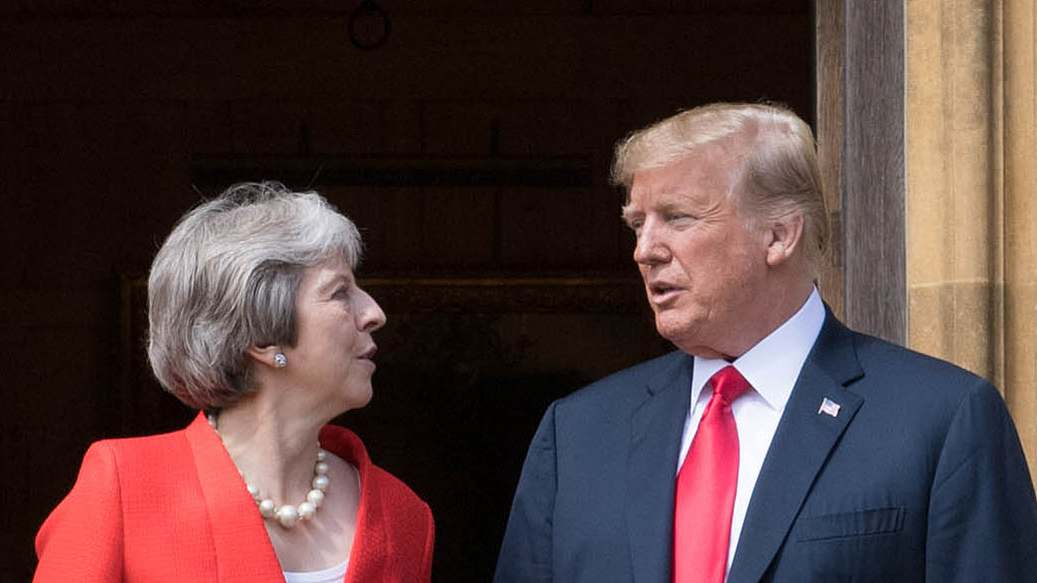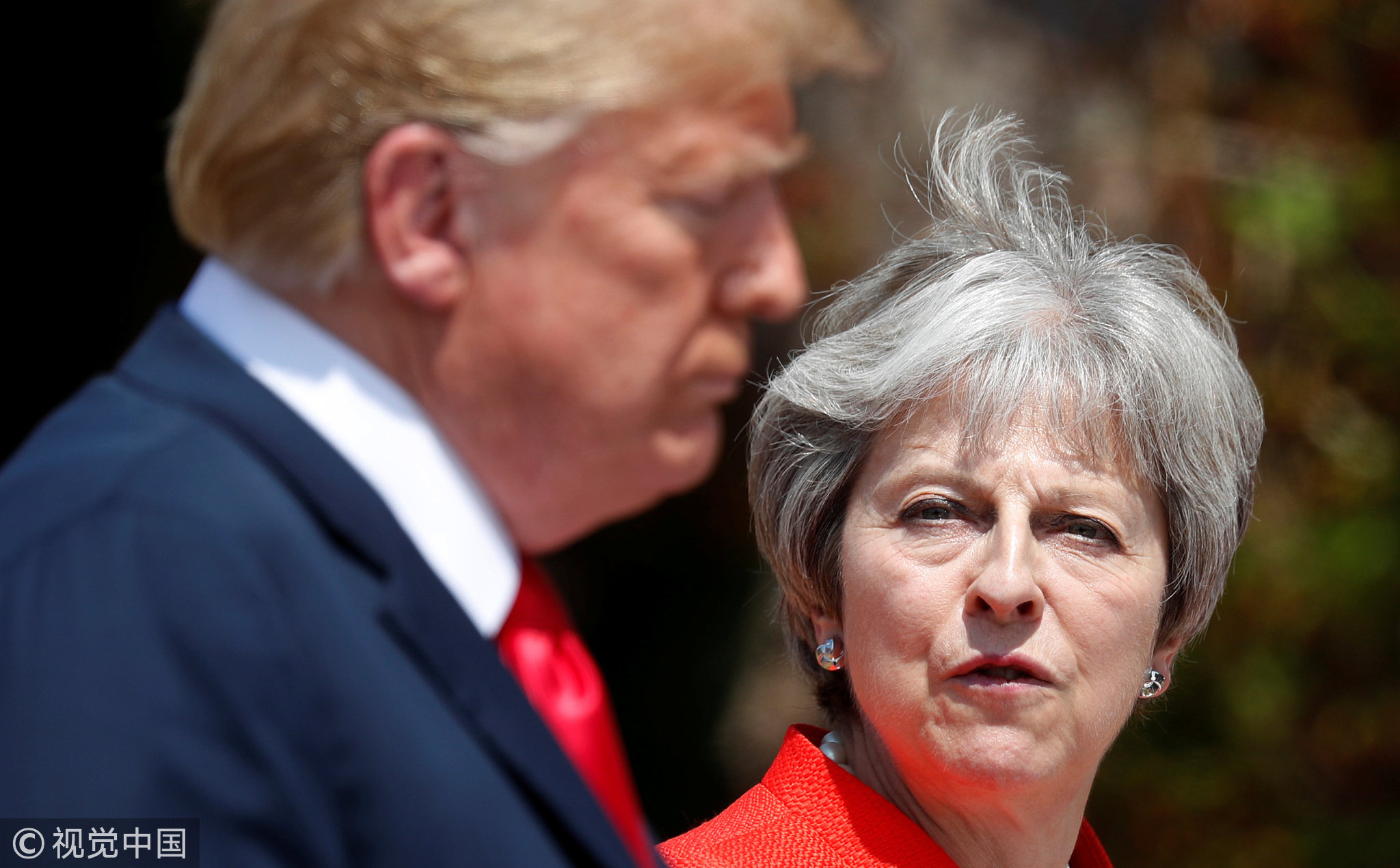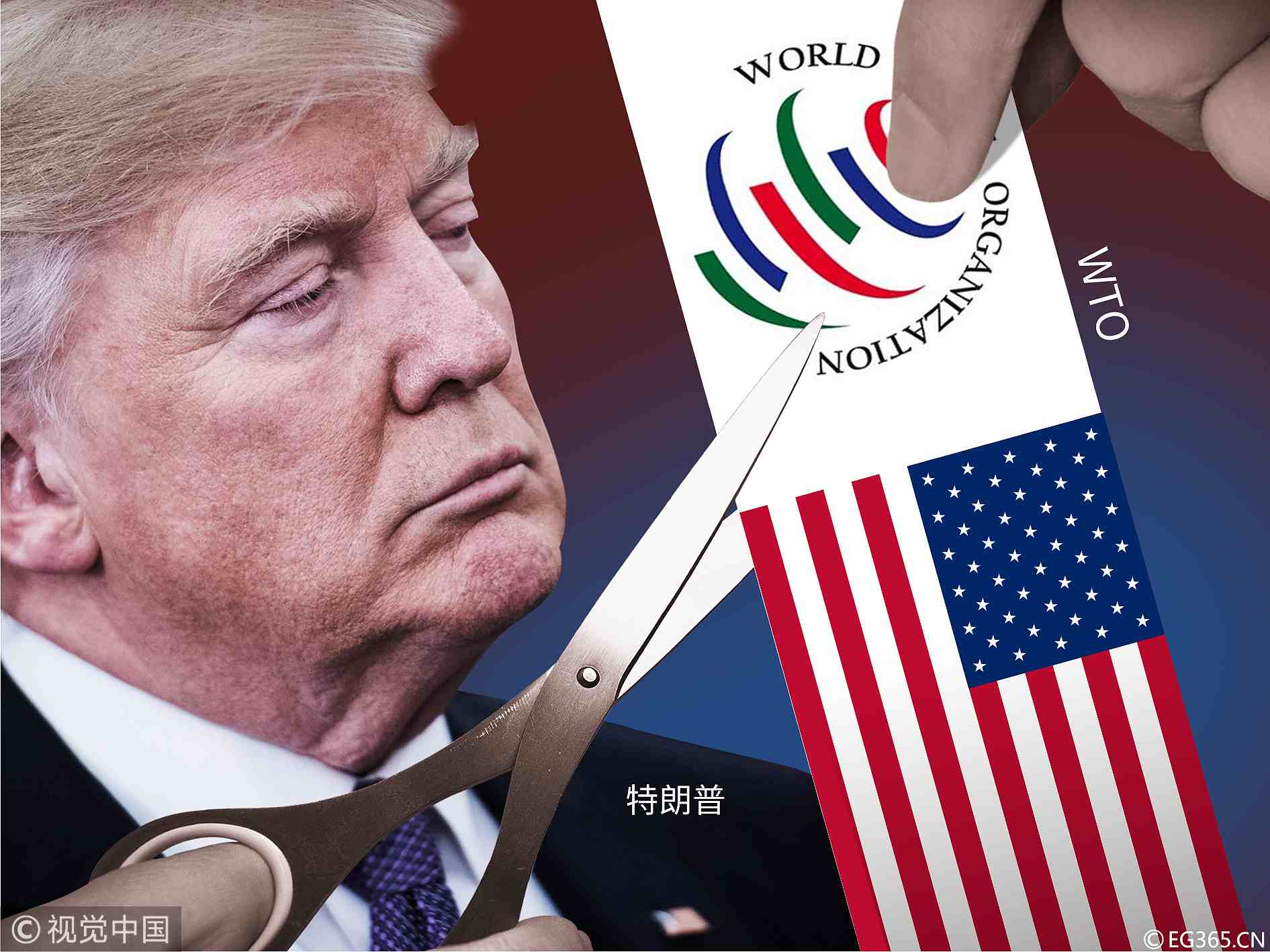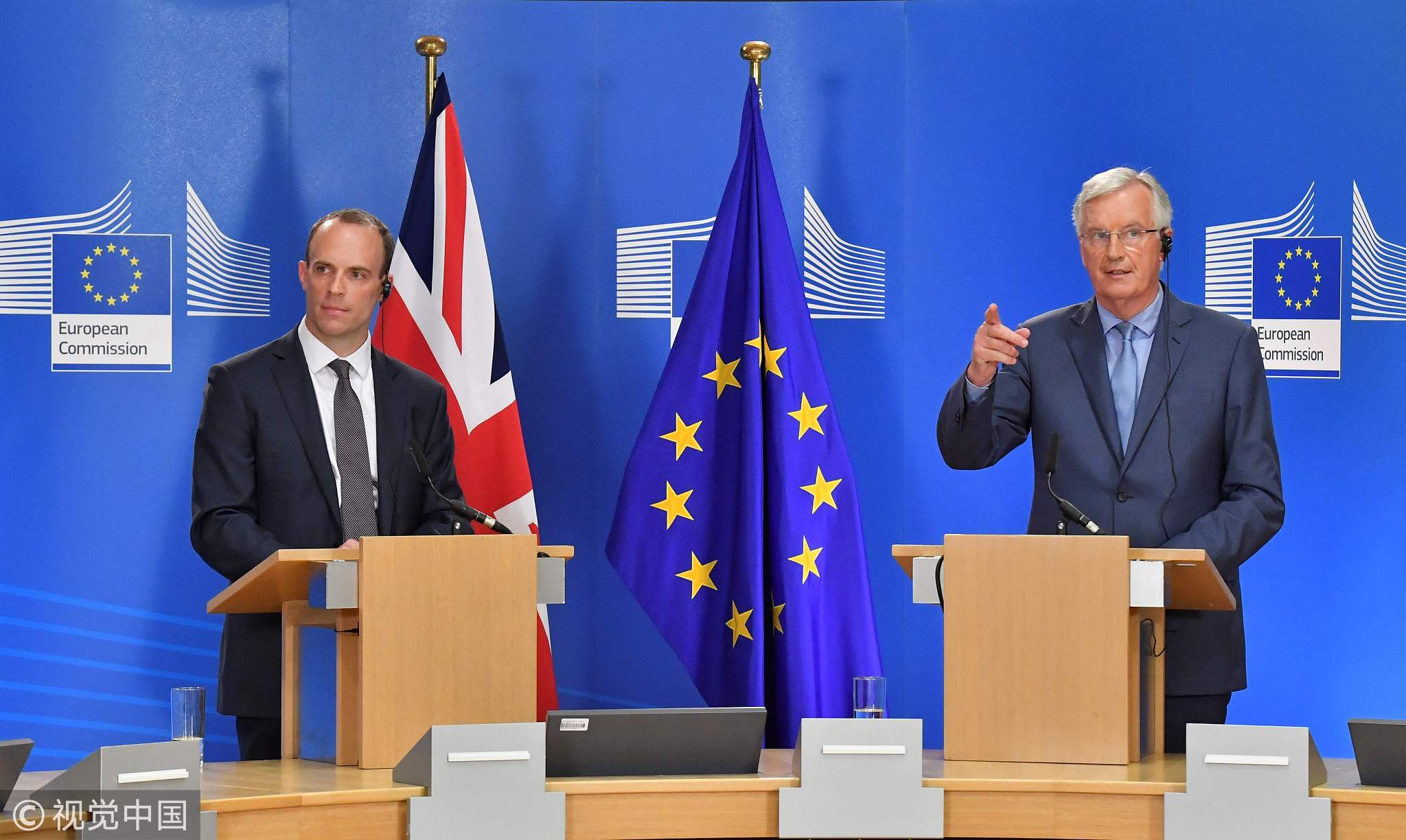
Opinions
12:38, 30-Jul-2018
Opinion: How the global trade dispute could affect Brexit
Updated
11:54, 02-Aug-2018
Josh de Lyon

Editor’s note: Dr Josh de Lyon is a researcher and investigator for The UK in a Changing Europe. The article reflects the author's opinion, and not necessarily the views of CGTN.
Since 2016, two of the world’s largest economies – the US and the UK – have made major shifts away from global economic integration.
The British electorate voted to leave the EU. Since then, the Trump Administration has sparked a global trade war. Tariffs have already been imposed on billions of dollars’ worth of goods by the US, China, and the EU, among others.
Last Wednesday, the US and EU jointly declared a ceasefire in their trade war. However, to date, the tariffs remain in place and it is not clear how the situation will develop.
This ongoing global trade dispute poses three potential problems to the UK as it undergoes its separation from the EU.
First, it poses a threat to the UK’s ability to agree to a free trade agreement (FTA) with the US.
One of the key arguments in favor of Brexit is that it will enable the UK to pursue its own independent trade policy. The US is considered to be the number one target for a new FTA.
Previous negotiations for a trade agreement between the US and the EU have faltered. The hope is that post-Brexit, the UK will be able to offer more flexible concessions to the US in exchange for a lucrative deal on services.

US President Donald Trump and British Prime Minister Theresa May hold a press conference after their meeting at Chequers in Buckinghamshire, Britain July 13, 2018. /VCG Photo.
US President Donald Trump and British Prime Minister Theresa May hold a press conference after their meeting at Chequers in Buckinghamshire, Britain July 13, 2018. /VCG Photo.
Services are hugely important to the UK economy, accounting for 44 percent of total exports. The US is by far the largest single country market with 21.7 percent of total UK services exports.
But clearly, the Trump Administration is not eager to further integrate with the world economy. On top of this, a recent trade report from the Office of the US Trade Representative is not encouraging for the prospect of a US-UK trade agreement.
One consideration is that trade deals typically take five to 10 years to negotiate and last for many years longer (in fact, Brexit is a rare example of a country seeking to exit a deep trade agreement). Given the timespans involved, it’s possible that a UK-US trade deal will depend on the outcome of the next US presidential election.
Second, the trade dispute has put into question the authority of the World Trade Organisation (WTO).
The initial set of tariffs imposed by the Trump Administration was justified on the grounds that there was a threat to national security and the tariffs were therefore permissible under WTO legislation.
However, many countries have rejected this interpretation, instead arguing that US tariffs are protectionist, and have retaliated with tariffs of their own.
In addition, the relationship between the US – the world’s biggest economy – and the WTO has deteriorated.

Donald Trump could conduct bilateral trade negotiations with other countries in defiance of the WTO's most-favored-nation and restrictive tax rate requirements under a proposed tariff bill. That would mean that the United States has effectively walked out of the WTO. /VCG Photo.
Donald Trump could conduct bilateral trade negotiations with other countries in defiance of the WTO's most-favored-nation and restrictive tax rate requirements under a proposed tariff bill. That would mean that the United States has effectively walked out of the WTO. /VCG Photo.
The WTO will be crucial for the UK after Brexit. For example, the UK is likely to lose the bilateral FTAs of the EU and will revert to WTO rules for trade with these countries.
Third, the UK is embarking on an economically turbulent period with almost all reports predicting that Brexit will have significant costs for the UK economy. The global trade war will add to these costs and further increase uncertainty for businesses and consumers.
Despite the potential consequences of the global trade dispute, it is not the most important issue faced by the UK as it moves forward with Brexit.
The British government published a White paper in July advocating a more integrated relationship with the EU than had previously looked likely. This includes a proposal for a single market for goods and an adapted model of the customs union.
This seeks to reap the most lucrative gains from trade agreements, which come through minimizing non-tariff barriers to trade rather than reducing tariffs.
The UK is starting from a position of mutual recognition on EU standards – a system that is distinctly different from that of the US. For the UK, deep integration with both the US and EU is not feasible.

The European Union's rejection of a key part of Britain's Brexit plan has sharply reduced its hopes for a deal. /VCG Photo.
The European Union's rejection of a key part of Britain's Brexit plan has sharply reduced its hopes for a deal. /VCG Photo.
It is economically sensible that the UK is beginning to prioritize its future relationship with the EU. This new policy stance is far more likely to be caused by the pull of its integral economic relationship with the EU rather than the push of the global trade dispute.
Outside of its future relationship with the EU, the UK continues to push ahead with its target of achieving an independent trade policy on tariffs and remains vague on its services relationship with the EU. This leaves space for future trade agreements to be negotiated with countries such as the US and China, but these appear to be of secondary importance.
The upshot is that the current global trade dispute may be causing concerns for the UK and Brexit, but these concerns are not at the forefront of its policy agenda.
The UK must remain committed to securing the best possible long-term outcome from Brexit, which is most dependent on the agreement reached with the EU.

SITEMAP
Copyright © 2018 CGTN. Beijing ICP prepared NO.16065310-3
Copyright © 2018 CGTN. Beijing ICP prepared NO.16065310-3